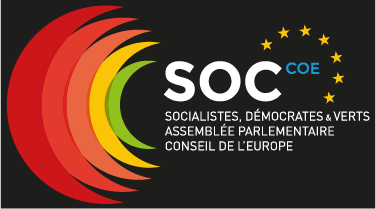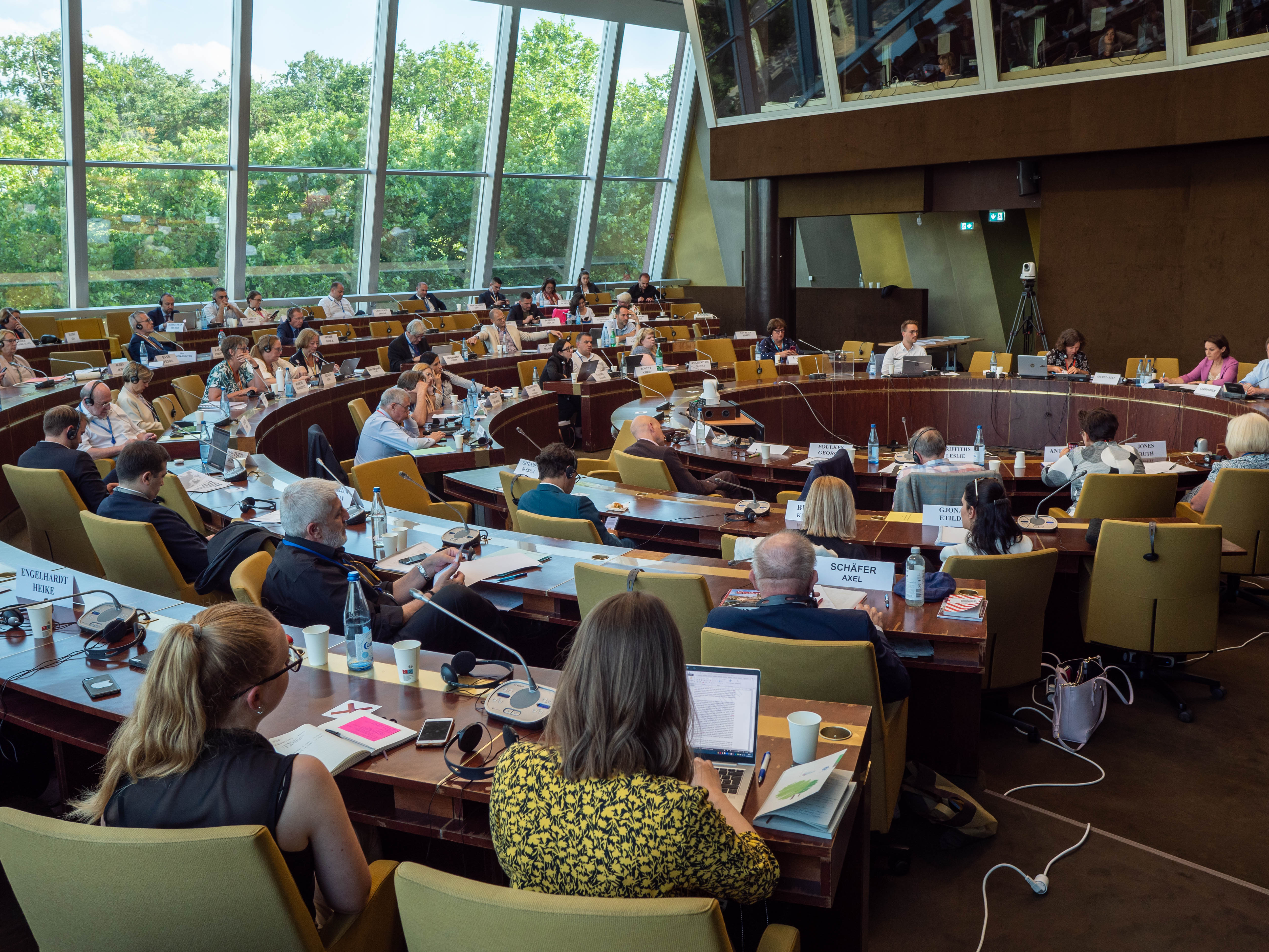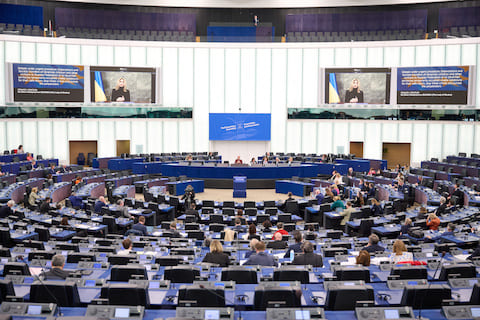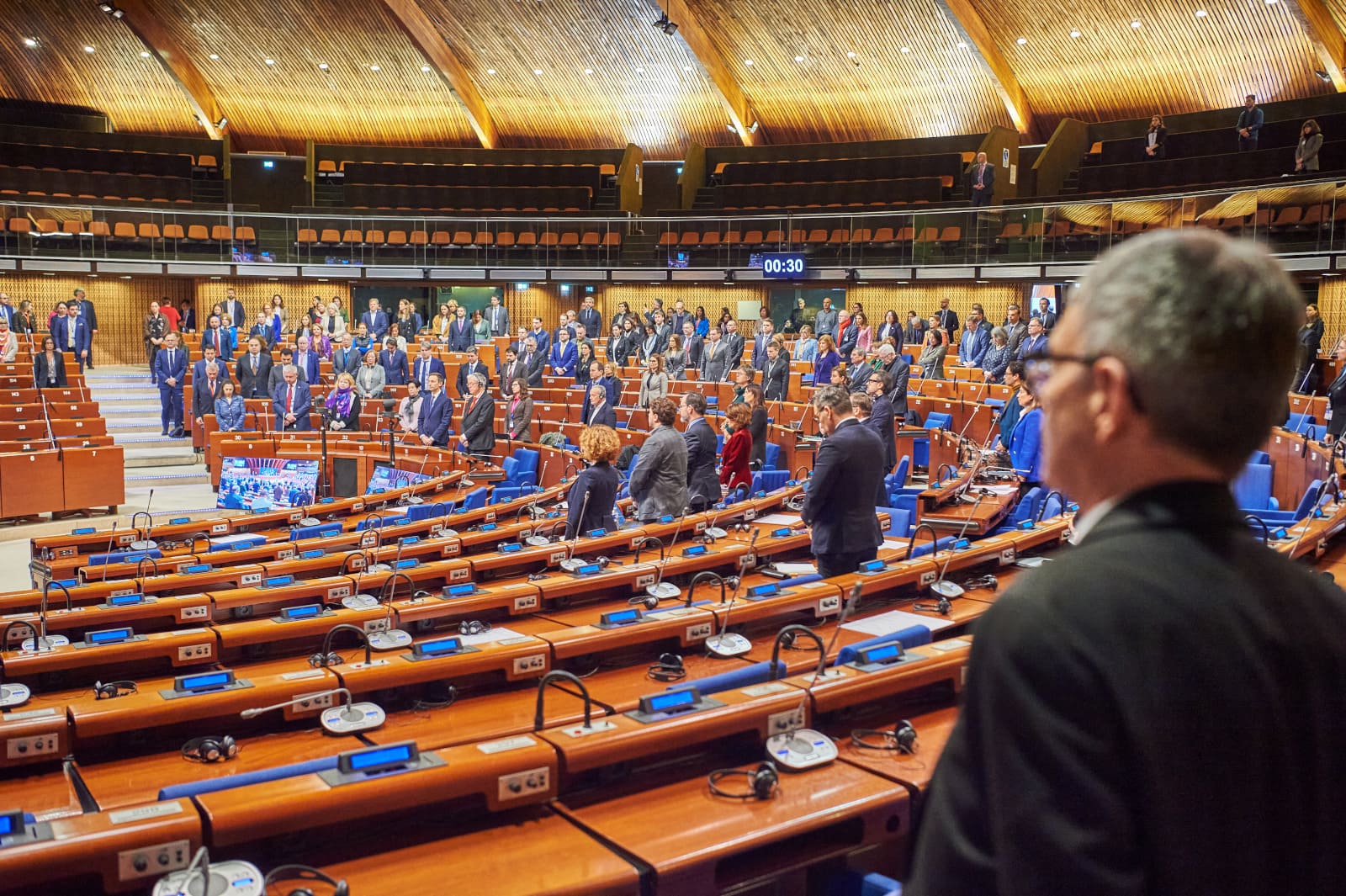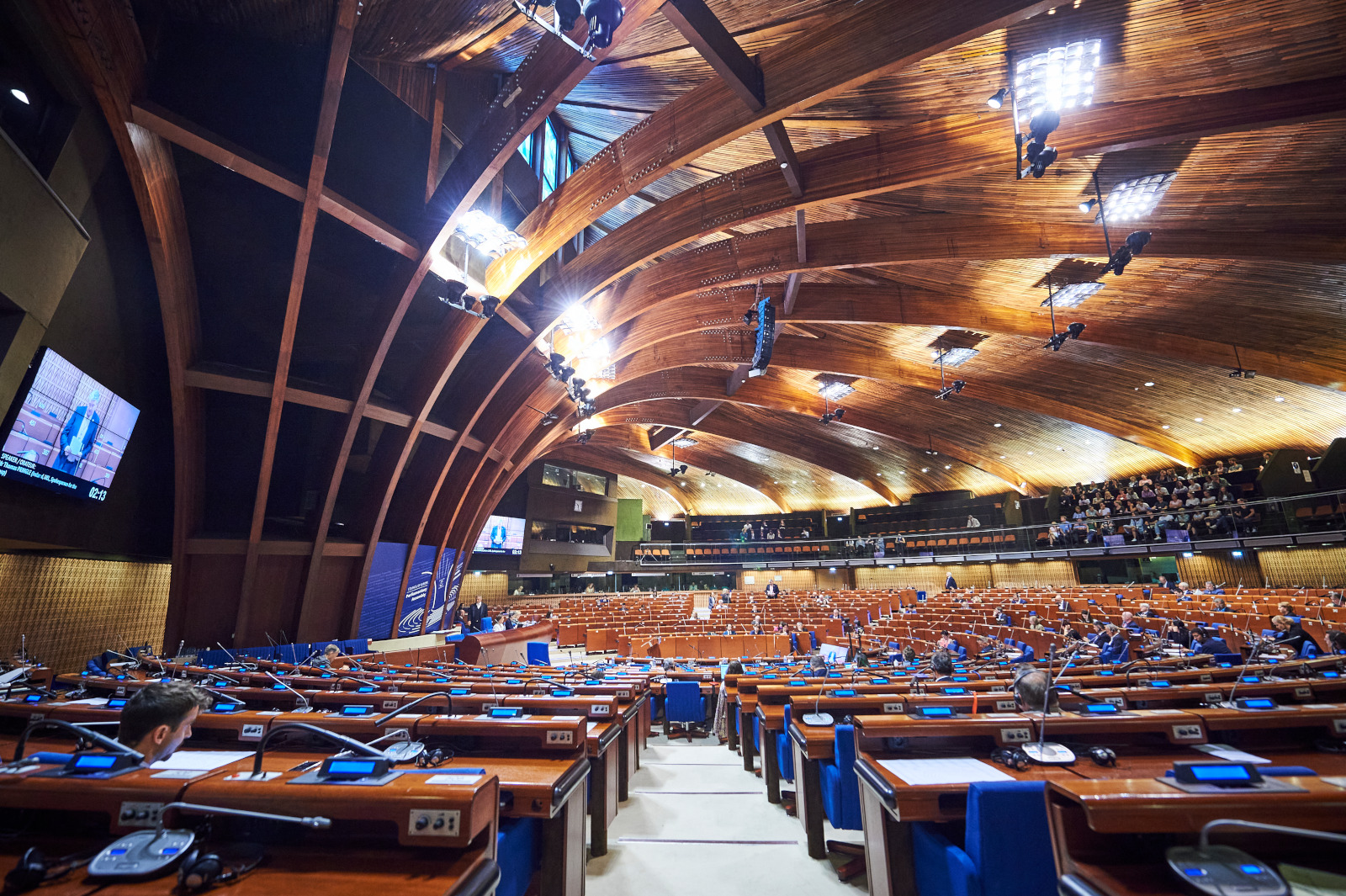
The Summer part session of the Parliamentary Assembly of the Council of Europe, too place, in physical presence, from 20th to 14th June 2022 in Strasbourg.
Tuesday, 21st June 2022
Recent challenges to security in Europe: what role for the Council of Europe?
Presentation by Mr Bogdan Klich (Poland, EPP/CD Rapporteur AS/Pol)
The report analysed the role that the Council of Europe can play to address the current security challenges in Europe without having a defence mandate. The Assembly discussed the report’s findings regarding the role of the Council of Europe in strengthening democratic security in Europe, intended as heightened human rights, rule of law, media freedom and cyber matters, and stressed the interdependency between the respect for democratic standards domestically and the respect for common rules in the international arena. The actions envisioned to attain this objective included the creation of a democratic resilience initiative to monitor democratic developments in member states and the organisation of a Fourth Summit of Heads of State and Government of Council of Europe member states.
The SOC Group welcomed the organisation of the Fourth Summit and reiterated the need to address the backsliding of democracy in Europe.
Upholding democratic security in Europe
High Level Panel and interactive debate
The Assembly engaged in a high‑level panel and debate on "Upholding Democratic Security in Europe". The debate focused on the notion of democratic security and on the ways of promoting the democratic resilience of our societies. Simon Coveney, Minister for Foreign Affairs and Minister for Defence of Ireland, addressed the Assembly and stressed the importance of protecting the integrity of our public institutions, promoting the prosperity of our citizens, and paying greater attention to understanding the will of the public. Leader of Belarus opposition Sviatlana Tsikhanouskaya spoke about the current state of affairs of the opposition in Belarus and asked the Council of Europe to establish a steering committee on the relations with Belarus as to better assist the representatives of the democratic forces and civil society of Belarus. Minister for Foreign Affairs of Finland Pekka Haavisto stressed the need to contain populism and nationalism in the face of growing insecurity in Europe, and supported Ms Tsikhanouskaya’s plead for increased support for democratic forces from the Council of Europe. Secretary General of the Council of Europe Marija Pejčinović-Burić ended the list of keynote speakers by condemning the actions of the Russian Federation and announcing the reopening of the Council of Europe’s office in Kyiv, to assist the Office of the Prosecutor General in the investigation of human rights violations.
The SOC Group welcomed Ms Tsikhanouskaya’s proposal for a steering committee and stressed the need for enhanced spaces and opportunities for cooperation with democratic forces in Belarus, as well as with the Russian civil society.
The continuing need to restore human rights and the rule of law in the North Caucasus region
Presentation by Mr Frank Schwabe (Germany, SOC), Rapporteur AS/JUR
The report by Frank Schwabe, Chair of our SOC Group, investigated the continuing deterioration of human rights and the rule of law in the North Caucasus region, including Dagestan, Ossetia and Chechnya, stressing the need to continue monitoring and reporting about human rights violations in Russian Federation despite its exclusion from the Council of Europe. The rapporteur highlighted the need to keep Russia accountable for its human rights violations on the basis of its obligations under the European Convention on Human Rights (which will remain binding for Russian Federation until 16 September 2022) and called on the Court of Human Rights to continue working on all the cases that are still pending and all the applications that can still be brought for violations before that date.
Reported cases of political prisoners in the Russian Federation
Presentation by Ms Thórhildur Sunna Ævarsdóttir (Iceland, SOC), Rapporteur AS/JUR
Following the report by Frank Schwabe, Thórhildur Sunna Ævarsdóttir, our Coordinator in the Legal Affairs Committee, reiterated the need to continue to support and engage with Russian democratic forces despite the expulsion of the Russian Federation from the Council of Europe, particularly in light of the increasing repression of civil society and independent media in Russia. The report included several recommendations to member and observer states, including granting visas or considering asylum requests from former political prisoners, refusing politically motivated extradition requests, and imposing targeted sanctions. The Assembly convened that urgent actions must be taken to support the civil society in the Russian Federation and ensuring its access to the Council of Europe and to the Human Rights Commissioner.
Wednesday, 22nd June 2022
Preventing and combating antisemitism in Europe
Presentation by Ms Petra Bayr (Austria, SOC), Rapporteur AS/Ega
The Assembly discussed the findings of the report presented by Ms Petra Bayr, our Coordinator in the Equality Committee, concerning growing antisemitism in our societies. In particular, she recalled the widespread antisemitism shown on social media and protests through the comparison of Covid-19 restrictive measures with Holocaust symbols, as well as the endurance of age-old stereotypes in the public discourse. The report included several best practice examples to prevent and combat antisemitism. Ms Ute Steyer, Rabbi of the Great Synagogue of Stockholm, addressed the Assembly to stress the importance of legal measures to ensure the safety of Jewish people and the need for education about antisemitism and the Holocaust. The Assembly condemned the rise of antisemitism in our societies, and agreed on the need to fight growing fear, misconceptions and antisemitic views through education in order to strengthen our societies as a whole.
Humanitarian consequences and internal and external migration in connection with the aggression of the Russian Federation against Ukraine
Presentation by Mr Pierre-Alain Fridez (Switzerland, SOC), Rapporteur AS/Mig
The report by Pierre-Alain Fridez focused on the humanitarian consequences of migration patterns coming from, and located within, Ukraine. The report illustrated the most recent numbers concerning the migration crisis resulting from Russia’s aggression on Ukraine and addressed the issue of financing the continuing support to Ukrainian migrants and IDPs as well as recovery and reconstruction for the country. It also addressed several issues related to the migration crisis, including trafficking in human beings, discriminations faced by minorities, and increased risks for women, children and LGBTI people. The Assembly agreed on the urgency to act on the suggestions presented in the report and welcomed its recommendations.
Thursday, 23rd June 2022
Ensuring accountability for the downing of flight MH17
Presentation by Mr Titus Corlăţean (Romania, SOC), Rapporteur AS/Jur
The Assembly discussed the need to ensure accountability for the downing of flight MH17 in the presence of the families of the victims. The report presented by Titus Corlăţean confirmed the involvement of the Russian military in providing a BUK anti-aircraft missile battery to their proxies from the so-called People’s Republics of Donetsk and Luhansk, which eventually fired against the MH17 flight. While several court cases are pending in the Netherlands and before competent international instances, the report argued in favour of continuous support to the investigation on the part of the Council of Europe and European Court of Human rights. The Assembly condemned the Russian authorities’ failure to cooperate over the years, argued in favour of ensuring accountability for those responsible, and expressed its heartfelt condolences to the families of the victims. The vote to the report took place with the presence of the King of the Netherlands, who addressed afterwards the Assembly.
Current affairs debate
United Kingdom agreement on asylum seekers and the critical government reaction regarding the European Court of Human Rights decision
At the initiative of the SOC Group, the Assembly approved the request to hold a current affairs debate on the recent Bill of Rights in UK, which could see the UK refusing to follow the rulings by the European Court of Human Rights. This bill followed the judgement of Strasbourg court, which ruled that UK deportations to Rwanda were illegal. During the debate members highlighted that the European Court of Human Rights has always been a guiding compass and its judgments were binding for all member states, without any exception. The Court and the European Convention of Human Rights represented the core values and the heart of the Council of Europe and should be protected and respected. Especially, in view of the preparation of the 4th Summit, which aimed to strengthen the Organisation. In addition, members highlighted that migrants and refugees had the right to seek for help in another country, and should by no means be deported to Rwanda, a country were violations of human rights and people disappearances had been spreading.

